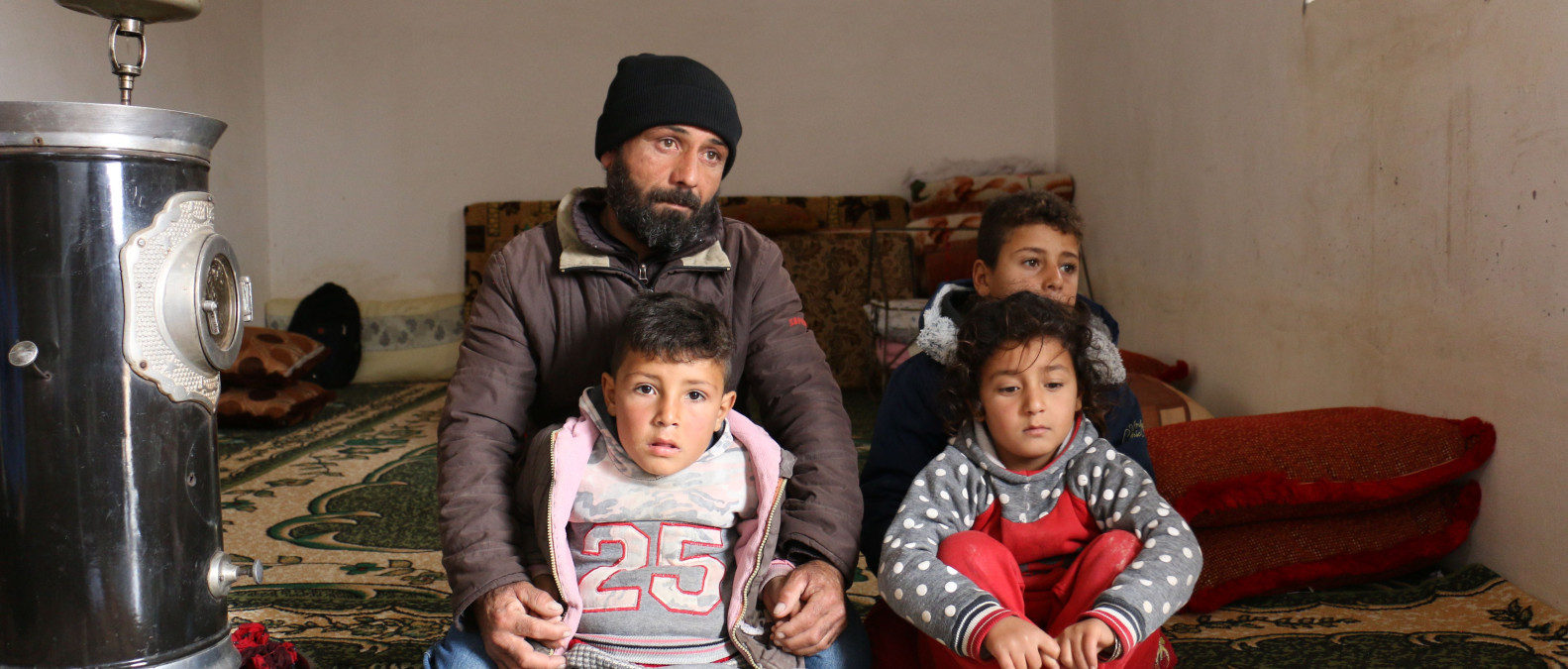A LOOK #INSIDETHEAID IN SYRIA
Published: Apr 24, 2019 Reading time: 4 minutes Share: Share an articleEight years after it began, the war in Syria is far from over. The figures are staggering: almost 12 million people are in need of some form of assistance, with 5 million of these relying on humanitarian aid as a “critical” lifeline.
So what can be done to help? And who are the people behind these numbers?

Here, we invite you to take a look #insidetheaid that People in Need is providing in Syria, with support from the European Union’s Civil Protection and Humanitarian Aid Operations (ECHO). From food to hygiene needs, we’ll show you the kind of assistance we provide – and introduce you to some of the families receiving it.
Food kits: Sustaining a family for 5 days
In the last year alone, 1.6 million people in Syria—men, women and children—have been forced to flee their homes. Most have had to leave with little or no warning, leaving their belongings behind.
“No matter what your situation is like before, poor or wealthy, you are all in the same position afterwards,” explains Maria Carr, head of People in Need’s response in the region. “Very quickly you need to eat and drink or you will not survive.”
For thousands of Syrians forced to flee bombs or violence, our emergency “ready-to-eat” kits are the very first assistance they receive.
Each kit is packed with enough food to sustain a family for five days. Everything in the kit can be eaten without being cooked—which is crucial, because most people in this situation have no pots, pans, or even spoons, and certainly no stoves.
We also specifically choose long-lasting rations, so that our kits can be packed and prepared in advance. This means that when we hear of a new wave of people displaced from their homes, our kits can be immediately loaded up and sent to where they are needed.
Watch how our emergency food kits are packed and checked, before being sent to where they are most needed in Syria. 1000 of these kits funded by the European Union have been distributed in the last year:
Hygiene kits: Keeping families healthy in terrible circumstances
Our staff regularly meet families who have walked miles and miles from their homes in search of safety. Because displacements of this kind have been going on for years in Syria, there is now serious overcrowding and a shortage of housing in the safer areas. Even the camps for displaced people are increasingly full.
This means that any new families arriving must set up camp in “informal” settlements—usually no more than swatches of bare land. Here, there is no piped water, no refuse facilities, and no toilets, meaning that conditions are ripe for the spread of disease. Outbreaks of water-borne illnesses like diarrhoea and leishmaniasis, caused by polluted water or eating with dirty hands, can be particularly dangerous for children and older people.
It is to families in these difficult situations that we distribute emergency hygiene kits. These kits contain a range of essential items, including soap, toothpaste, towels, washing-up liquid and a wash basin. Not only are these items important for the personal dignity of families, who have usually been forced out of their homes in traumatic circumstances, but they are also critical for preventing illness and disease.
What’s inside PIN’s emergency hygiene kits for displaced families in Syria, 3000 of which are being funded by the European Union.
“Many illnesses are caused by contaminated water,” says Maria Carr. “That is why we include jerry cans, a water bucket, a water jug and a mug for families to store it and use it safely. We also monitor water quality in the camps and use purification tablets if they are needed.”
A specially-designed leaflet illustrating safe handwashing practises is included, to help families stay healthy.
Choosing and cooking your own food
In the immediate aftermath of a crisis, pre-packaged emergency kits are critical. But for families in slightly more stable situations, we wanted to adopt an approach that would allow them as much dignity as possible, while also helping to stimulate the local economy.
Explore what it looks like inside these shops and Maha’s home, in our 360° video:
That’s why we have created a food voucher system across Northern Syria. Each month, vouchers funded by the European Union are distributed to an average of 2,400 vulnerable families, and can be used in any one of the hundreds of local shops who have joined our project.
This approach allows people to choose and cook their own food, helping to restore a crucial sense of normality in very difficult circumstances. 19,260 food vouchers funded by the European Union have been distributed in the last year alone.
Learn how to make traditional Syrian kofta with Maha:
But what do people typically buy with these vouchers? In the short video below, Maha will take you through one of her family’s favourite recipes, made entirely with items bought using our food vouchers.
For more information about the current situation in Syria, see our press release on the 8th anniversary of the war.



